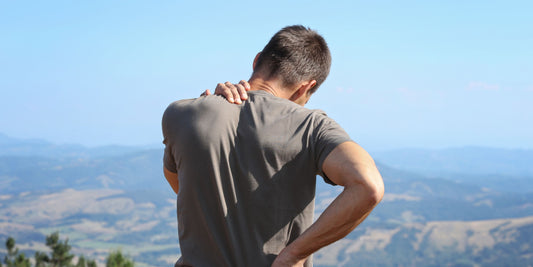Sleep apnea affects millions of people worldwide, robbing them of deep, restorative rest and increasing their risk of chronic health problems. In recent years, CBD has emerged as a possible alternative or complementary therapy. This article explores how CBD could support those with sleep apnea, referencing clinical research, potential mechanisms of action, dosage considerations, and its role alongside CPAP therapy.
What Is Sleep Apnea and Why It’s a Serious Health Concern
Sleep apnea is a sleep disorder characterized by repeated interruptions in breathing throughout the night. The most common form, obstructive sleep apnea (OSA), occurs when throat muscles intermittently relax and block the airway.
Common Symptoms of Sleep Apnea:
- Loud snoring
- Episodes of breathing cessation
- Gasping or choking during sleep
- Daytime fatigue and irritability
The condition increases risks for high blood pressure, cardiovascular disease, Type 2 diabetes, and depression. While CPAP (Continuous Positive Airway Pressure) remains the gold standard treatment, adherence is a significant issue due to discomfort or inconvenience.
CBD and Sleep Apnea: How Cannabidiol Interacts With the Sleep-Wake Cycle
Cannabidiol (CBD), a non-psychoactive compound found in hemp, has been studied for its effects on sleep disorders, inflammation, anxiety, and neurological regulation. Its growing popularity in sleep medicine is due to its multi-targeted therapeutic potential, particularly in regulating serotonin, GABA, and inflammatory pathways.
Does CBD Help Sleep Apnea?
CBD’s interaction with the endocannabinoid system (ECS) may indirectly help those with sleep apnea by improving sleep quality, reducing anxiety-related insomnia, and supporting airway muscle stabilization. Though not a direct cure, it could reduce apnea symptoms such as snoring, airway blockage, and oxygen desaturation during sleep.
What the Science Says: Clinical Studies on CBD and Sleep Apnea
While large-scale human trials are limited, preliminary research suggests a role for cannabinoids in sleep regulation and airway support.
Relevant Studies:
| Study | Summary | Link |
|---|---|---|
| Carley et al., 2018 | Studied dronabinol, a synthetic THC analog, and found significant reductions in apnea index in OSA patients. | PubMed |
| Babson et al., 2017 | Reviewed cannabis and sleep research; noted improved sleep architecture with CBD in multiple populations. | NIH.gov |
| Zuardi et al., 2006 | Explored CBD’s anxiolytic effects, which can help reduce sleep onset latency. | PubMed |
Although most data centers around dronabinol, CBD shares some pathways—minus the psychoactive effects—making it a safer option for daily use.
How CBD Might Help With Snoring and Breathing Interruptions
Mechanisms of Action:
- Anti-inflammatory: Reduces airway inflammation
- Muscle modulation: May aid in airway muscle stabilization
- Anxiolytic: Eases sleep anxiety, reducing wake-after-sleep-onset episodes
- Neuroregulation: Stabilizes autonomic functions that impact breathing rhythm
Best CBD Oil Options for Sleep Apnea Relief
Finding the best CBD oil for sleep apnea symptoms means choosing high-quality, lab-tested products that align with your body’s needs.
What to Look for:
- Full-spectrum or broad-spectrum extracts for entourage effect
- Third-party lab results
- Oil, softgel, or tincture formats
- Low THC content (<0.3%)
Top Product Formats:
| Format | Pros | Best Use |
| CBD Oil Drops | Fast absorption | Use before bedtime |
| Softgels | Consistent dosage | Long-lasting relief |
| Gummies | Tasty, easy | Travel or microdosing |
CBD Dosage for Sleep Apnea Relief: Guidelines and Cautions
CBD dosage varies based on body weight, tolerance, and severity of symptoms. For sleep apnea, low to moderate doses are typically effective.
Dosage Chart:
| Weight | Starting Dose | Max Safe Dose |
| <130 lbs | 10-15 mg | 40-60 mg |
| 130–200 lbs | 20-30 mg | 60-100 mg |
| >200 lbs | 25-50 mg | 100-120 mg |
Always start low and increase gradually. Speak with a healthcare provider, especially if taking sedatives or other sleep medications.
Combining CBD With CPAP Therapy
CBD is not a replacement for CPAP, but many users report better tolerance and improved sleep when combining therapies.
Benefits of Combination:
- Reduced anxiety and claustrophobia from mask use
- Better sleep quality and longer REM phases
- Lower inflammation for those with nasal discomfort
Side Effects of CBD in Sleep Apnea Patients
While CBD is generally well tolerated, side effects can occur, especially at high doses or when mixed with other drugs.
Reported Side Effects:
- Drowsiness
- Dry mouth
- Changes in appetite
People with sleep apnea often take multiple medications; consult your doctor to avoid interactions.
CBD vs. Dronabinol for Sleep Apnea: What’s the Difference?
Dronabinol, a synthetic THC analog, has been shown to reduce apnea events in clinical settings, but it's prescription-only and may cause psychoactive effects.
| Feature | CBD | Dronabinol |
| Legal OTC? | Yes | No (Rx only) |
| Psychoactive? | No | Yes |
| Apnea Evidence | Emerging | Established in some trials |
Frequently Asked Questions (FAQ)
Is CBD a replacement for CPAP?
No. CBD may support sleep quality but does not physically maintain open airways like CPAP.
Can CBD reduce apnea episodes?
Some early research and anecdotal reports suggest CBD benefits sleep apnea by reducing inflammation and supporting airway muscle tone.
What’s the best time to take CBD for sleep apnea?
30–60 minutes before bed, ideally after a light meal to enhance absorption.
What’s the best CBD oil for sleep apnea?
Look for broad-spectrum or full-spectrum CBD oils, verified by third-party testing, ideally with calming terpenes like linalool or myrcene.
CBD Shows Promise as a Sleep Apnea Support Tool
The early science and user experiences indicate that CBD for sleep apnea may offer meaningful relief, especially in reducing snoring, breathing interruptions, and sleep anxiety. However, it’s not a standalone cure. If you suffer from OSA, talk to your doctor before adjusting your treatment plan. Used correctly, CBD oil for sleep apnea may help you breathe easier—and sleep better.
Sources:





